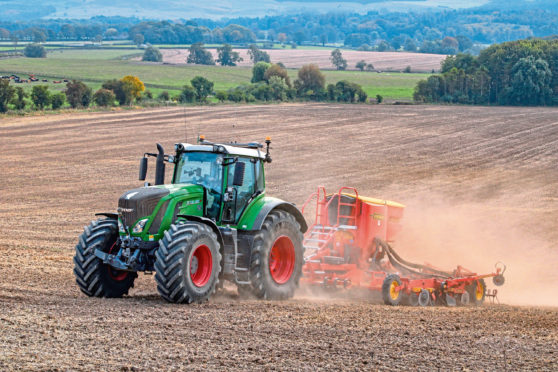Scottish farmers seem to be needing a nudge to apply for a share of the Scottish Government’s £10 million Sustainable Agriculture Capital Grant Scheme (SACGS).
Following criticism from land agents Galbraiths that the scheme was “too onerous” to apply for, the farmers’ union and SAC Consulting have urged producers to put in a bid for up to £20,000 of assistance to buy new gear before the application window closes on Sunday.
As rain continues to fall across many arable, potato and vegetable growing areas, it seems appropriate farmers are being encouraged by SAC to focus on applying for funding for floatation tyres, albeit the aim is to reduce the impact of farm machinery on the soil.
The main objectives of SACGS are to improve the natural environment, reduce greenhouse gas emissions, and support sustainable farming and land use. Applicants don’t need to submit quotes with applications but, if successful in their scheme application, they are required to present proof of purchase and payment at the point of claiming the grant.
Contrary to Galbraith’s criticism of the application process, NFU Scotland’s (NFUS) policy manager Jenny Brunton claimed it was “relatively simple”. She said: “Applicants can utilise already completed carbon audits, animal health plans and nutrient management plans to gain additional ‘green points’ for the scoring system.”
However, she said the £10m scheme was just the beginning if farming is to be helped to transition to lower emissions.
She added: “NFUS believes much wider support will be needed in future to provide greater variety of options. That will allow every farm and croft to access measures appropriate to their business to deliver climate change targets. It will also help support a more significant number of businesses from all sectors across Scottish agriculture to tackle climate change, increase biodiversity and improve water and air quality.”
A Scottish Government spokesperson said: “Applying is a simple process and applicants are not necessarily required to have a carbon audit, nutrient plan or veterinary plan, although having such documentation may enable applicants to gain additional points.
“We will carry out monitoring to assess the effectiveness of the pilot scheme, asking farmers and crofters for their views. The feedback and results will allow us to shape future policy and support mechanisms.”
